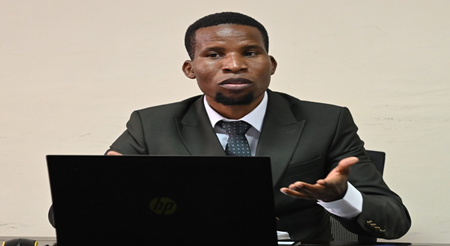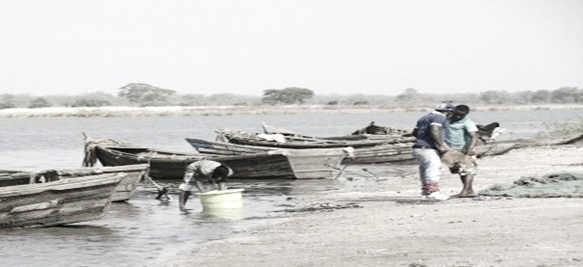Inland tropical freshwater shallow lakes in Africa contribute significantly to local and global communities. These ecosystem services (ESs) contributions are aligned to UN SDGs and demonstrate a positive contribution to humanity in terms of the food systems and climate regulations. Human activities alongside climatic drivers are changing inland freshwater shallow lakes’ ecosystems and associated biodiversity across the globe.
Rodgers Makwinja is a PhD candidate at ACEWM specializing in Aquatic Ecosystem Management. Holding BSc and two MSc degrees in the fields of Fisheries and Water Resources and Supply Management, his research works focus on natural resource economics, sustainability science, human- nature conflict, modeling, landscape management, conservation and economic policies, livelihood, and ecological restoration- pressing issues in the UN Agenda 2030 and African Union Agenda 2063.
His Ten PhD research publications have meticulously linked economics, ecology, socio-psychology, and policy within one broader framework and demonstrated how freshwater ecosystem management approaches could be integrated into multi-sectoral policies to reduce tradeoffs, promote synergies, and enhance the livelihood of local communities’ resilience and ecological restoration. The primary focus of his research projects is to promote multi-disciplinary approaches to ecological science and management and improve natural and social sciences integration in informing local, national, regional, and global ecosystem management policies.

Rodgers Makwinja, PhD candidate at ACEWM (Aquatic Ecosystem Management)
In most of his research works, Rodgers tries to put sustainable development goals into perspective. For instance, his publication on the ‘Willingness to pay for the ecological restoration of an inland freshwater shallow lake’ aligns with African Union Agenda 2063 (Goal 7). A multi-disciplinary approach to ecological science and management and improve natural and social sciences integration in informing local, national, regional, and global ecosystem management policies.

Overall, Rogers’ dissertation advances scientific knowledge and provides practical guidance for inland freshwater shallow lakes’ ecosystems governance and landscape planning. It also provides inherent linkages between conservation science and practical policy responses, promotes the integration of science into policies, and guides strategic plans to conserve, restore and enhance ESs in inland freshwater shallow lakes in the least developed countries while improving local communities’ resilience to achieve Aichi Biodiversity Targets, African Union Agenda 2063 and United Nations Agenda 2030. It further provides a reference for further research and development of a sustainable framework, raising awareness about the roles and values of ESs derived from the shallow freshwater lakes for human well-being on a local, national, regional, and global scale while providing policy directions.
It further provides a reference for further research and development of a sustainable framework, raising awareness about the roles and values of ESs derived from the shallow freshwater lakes for human well-being on a local, national, regional, and global scale while providing policy directions. Rodgers reviewed the 2019 Intergovernmental Science-Policy Platform on Biodiversity and Ecosystem Services document, PLOS One, Journal of Mountain Science, Geocarto International, and Techno-Press journal articles. He has published extensively in multiple disciplines such as fish nutrition, modeling, sustainability science, ecological economics, ecotoxicology, limnology, and ecology, and has been cited in over 150 articles since 2017.

